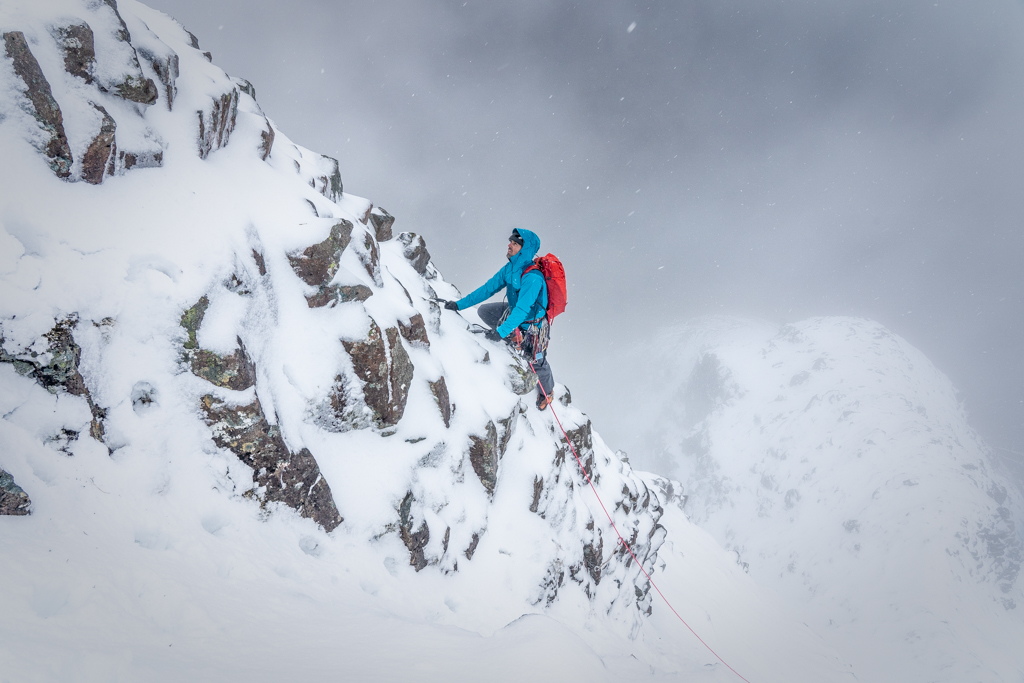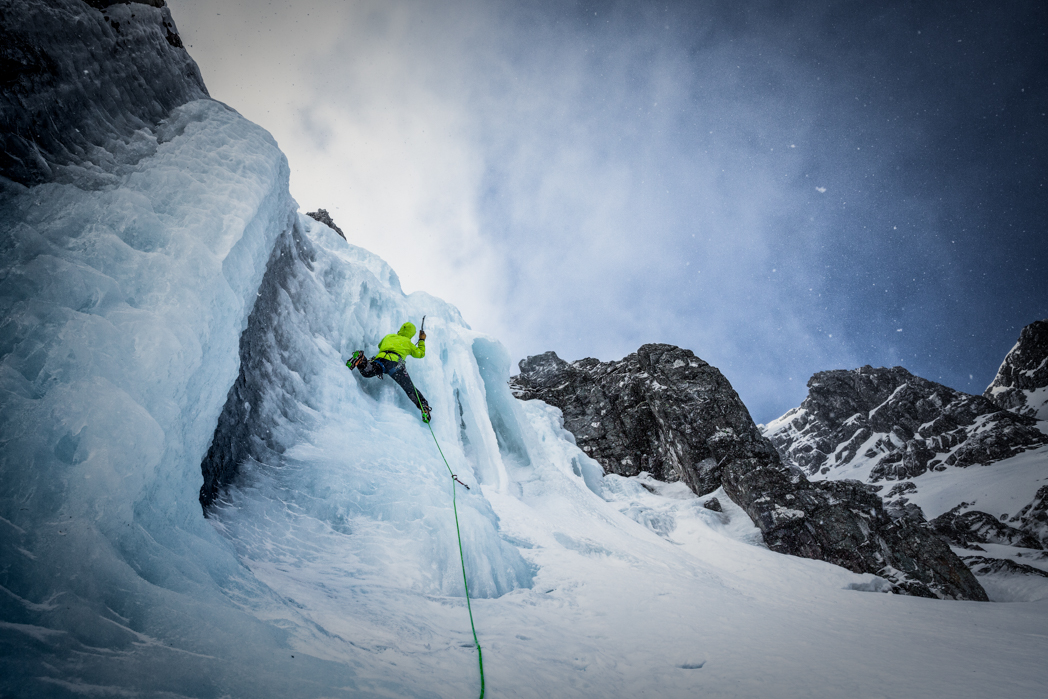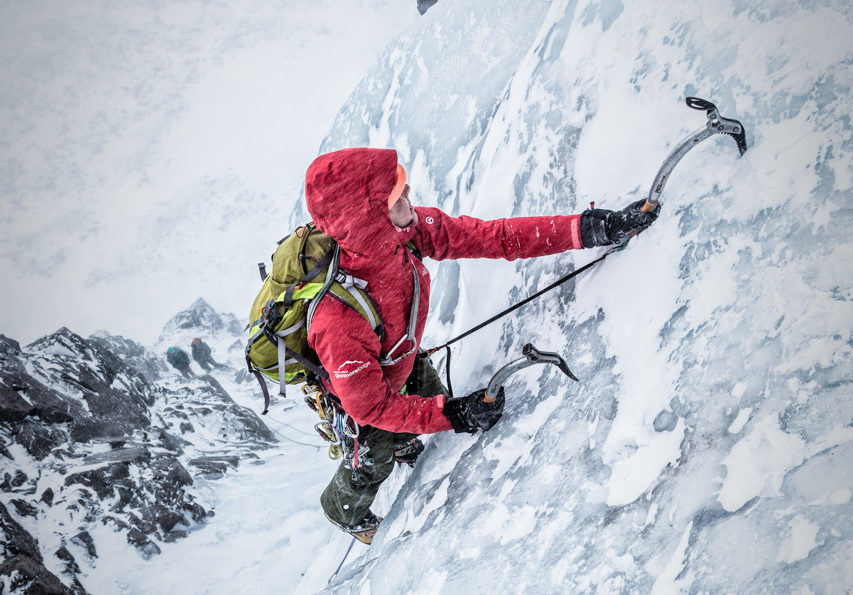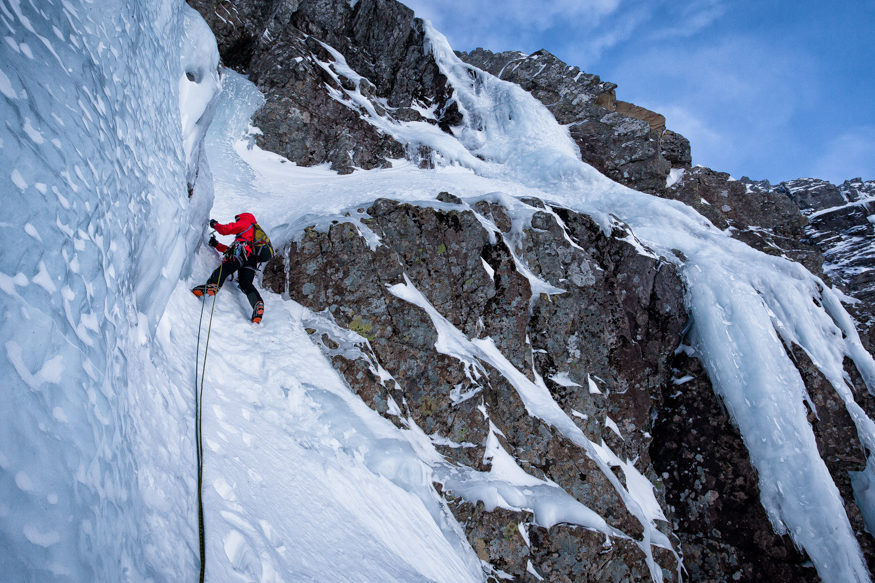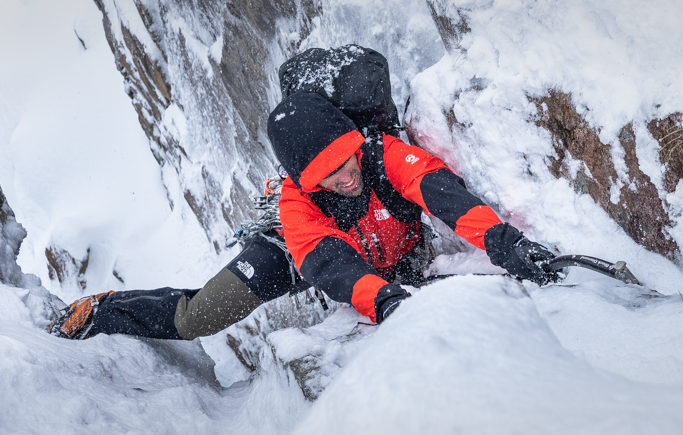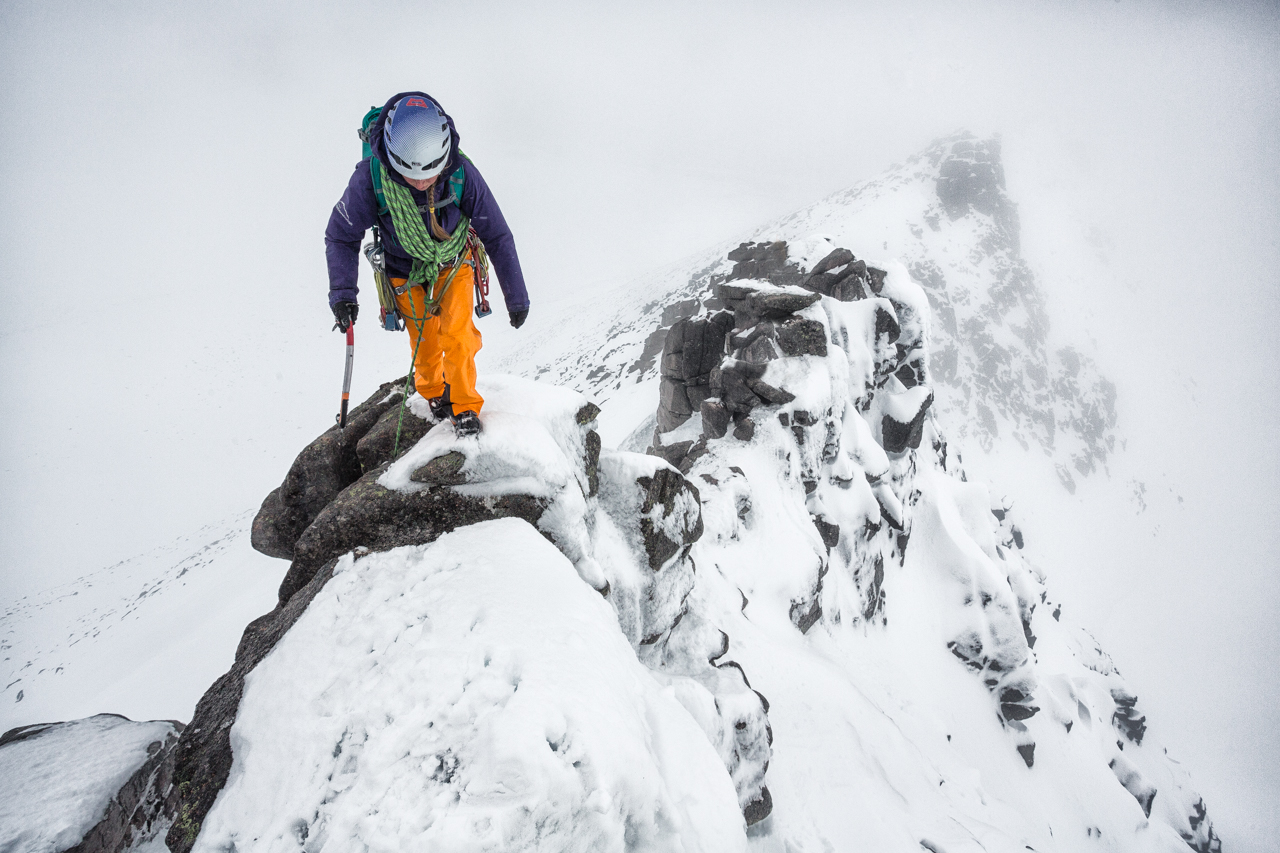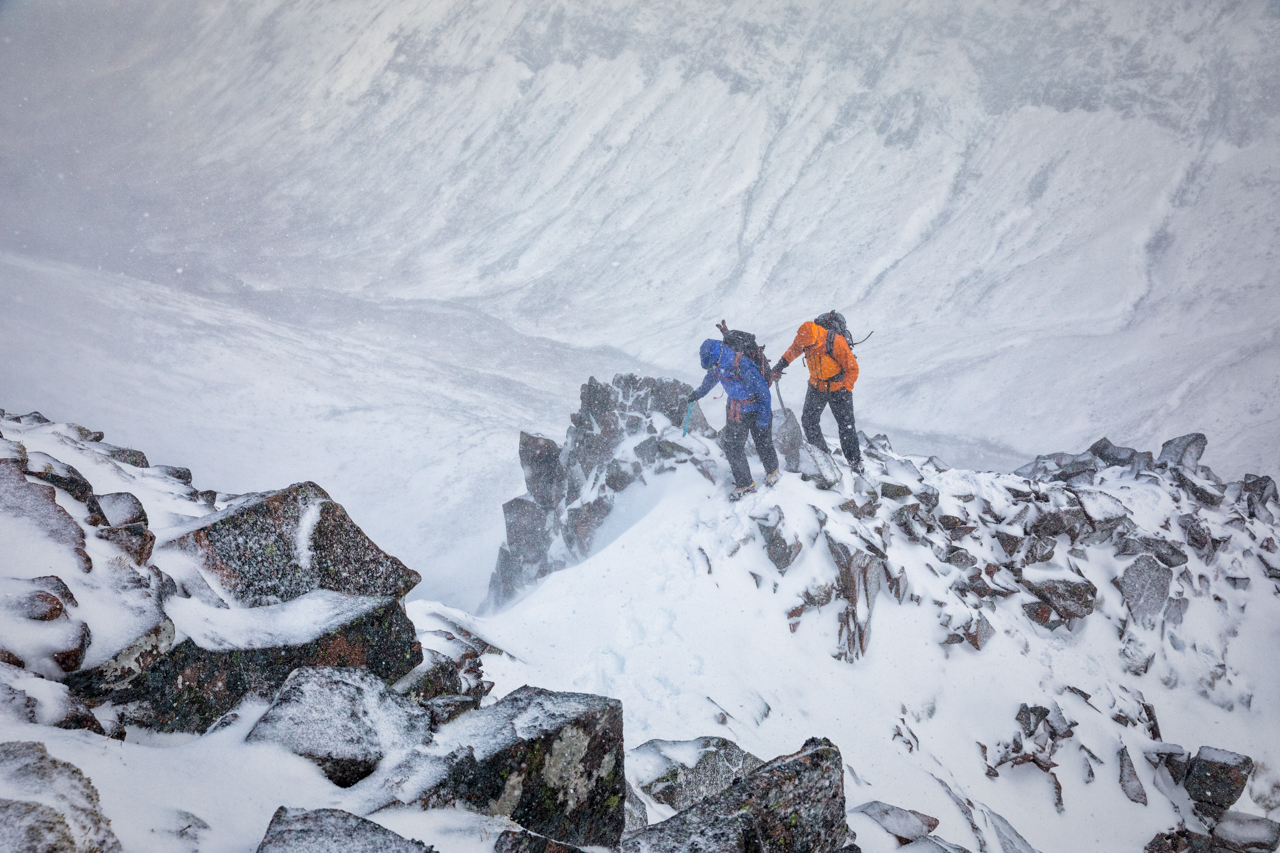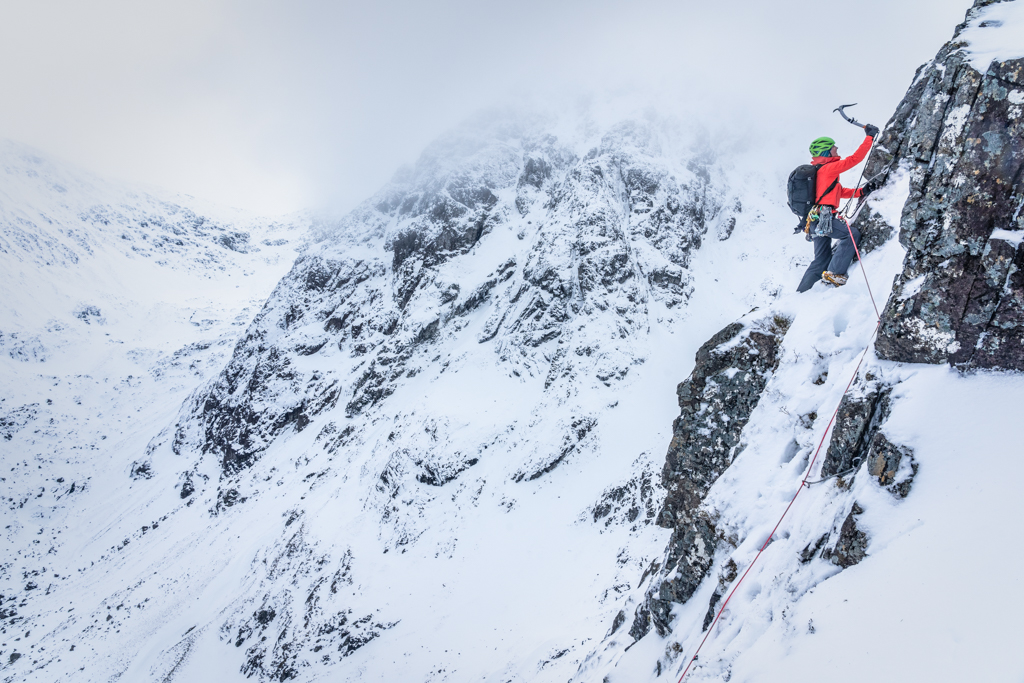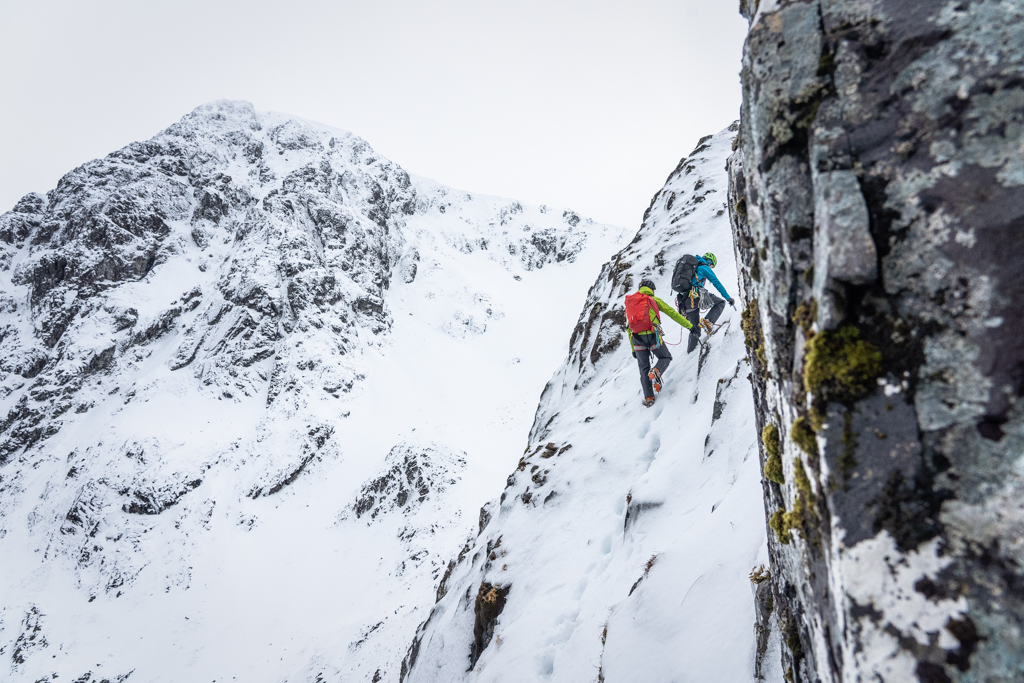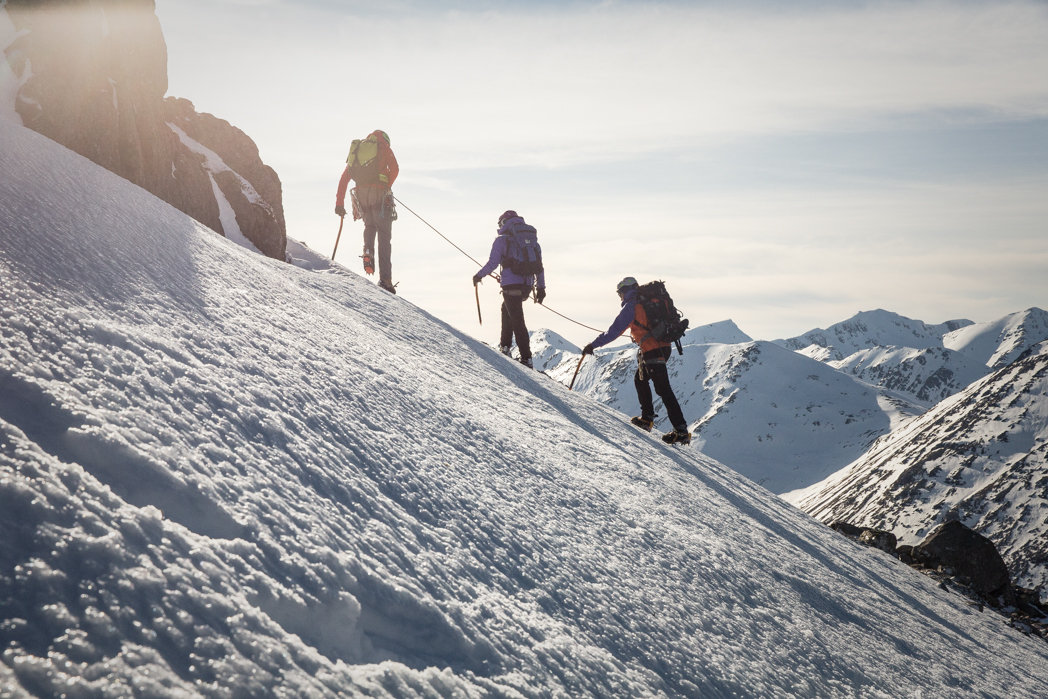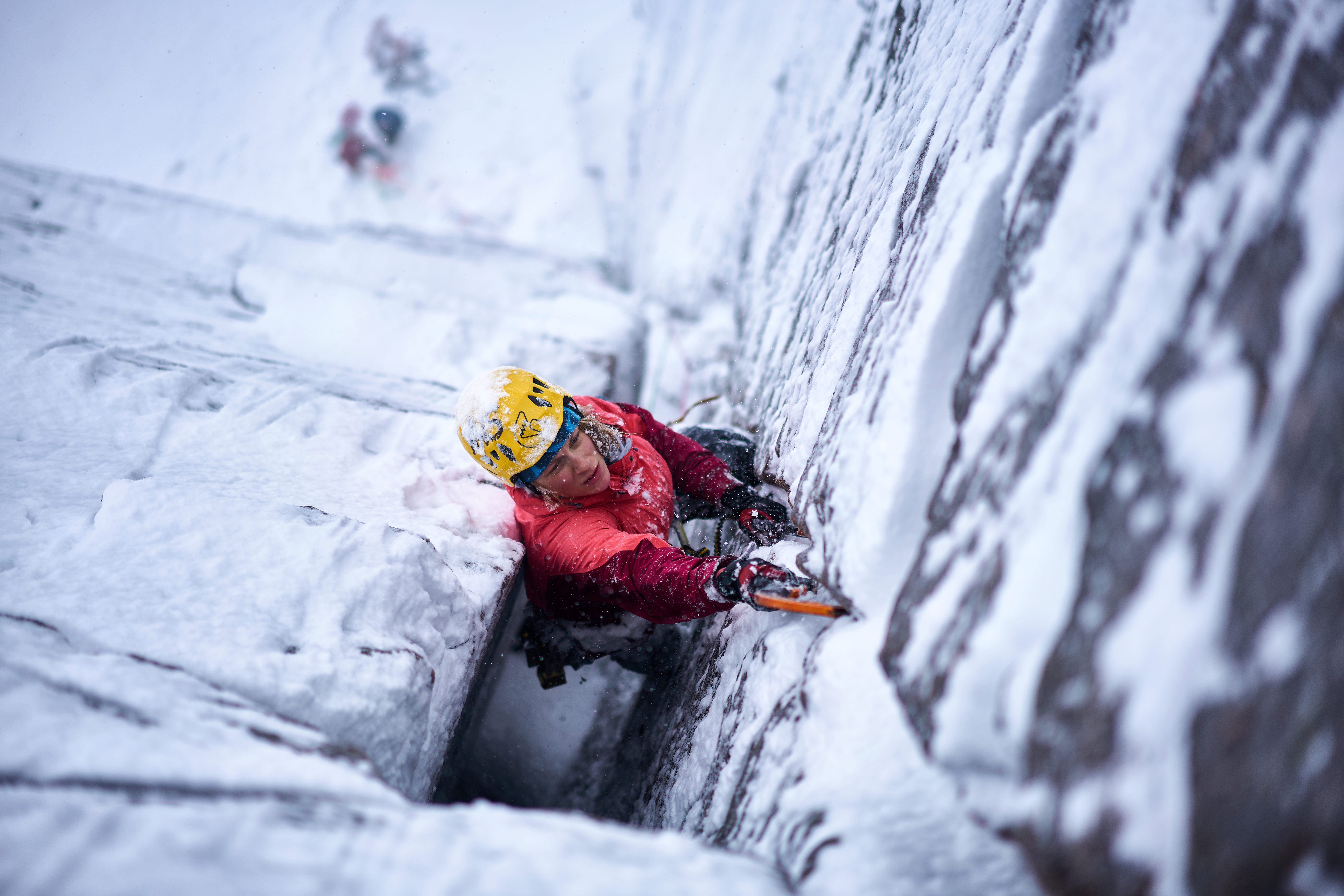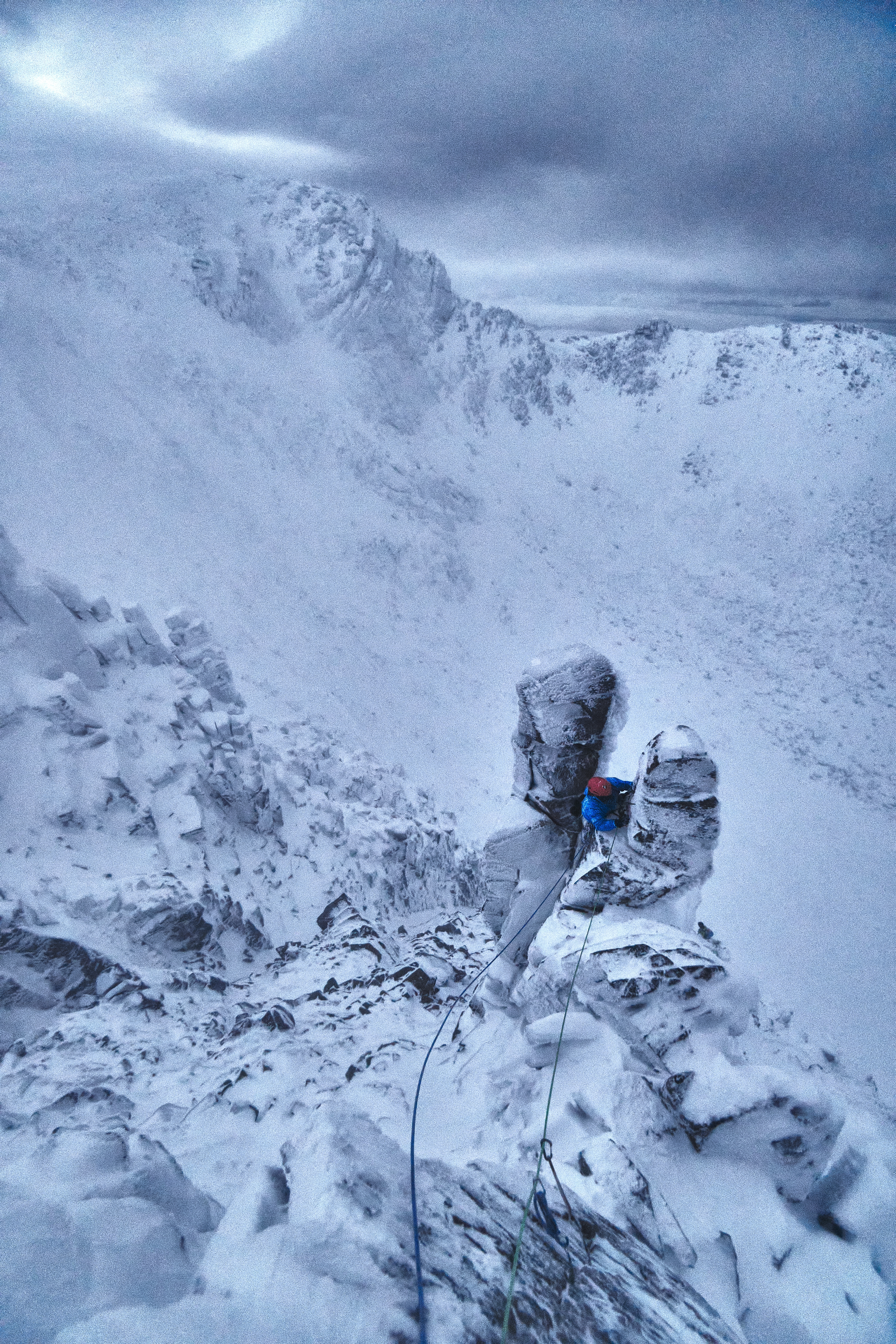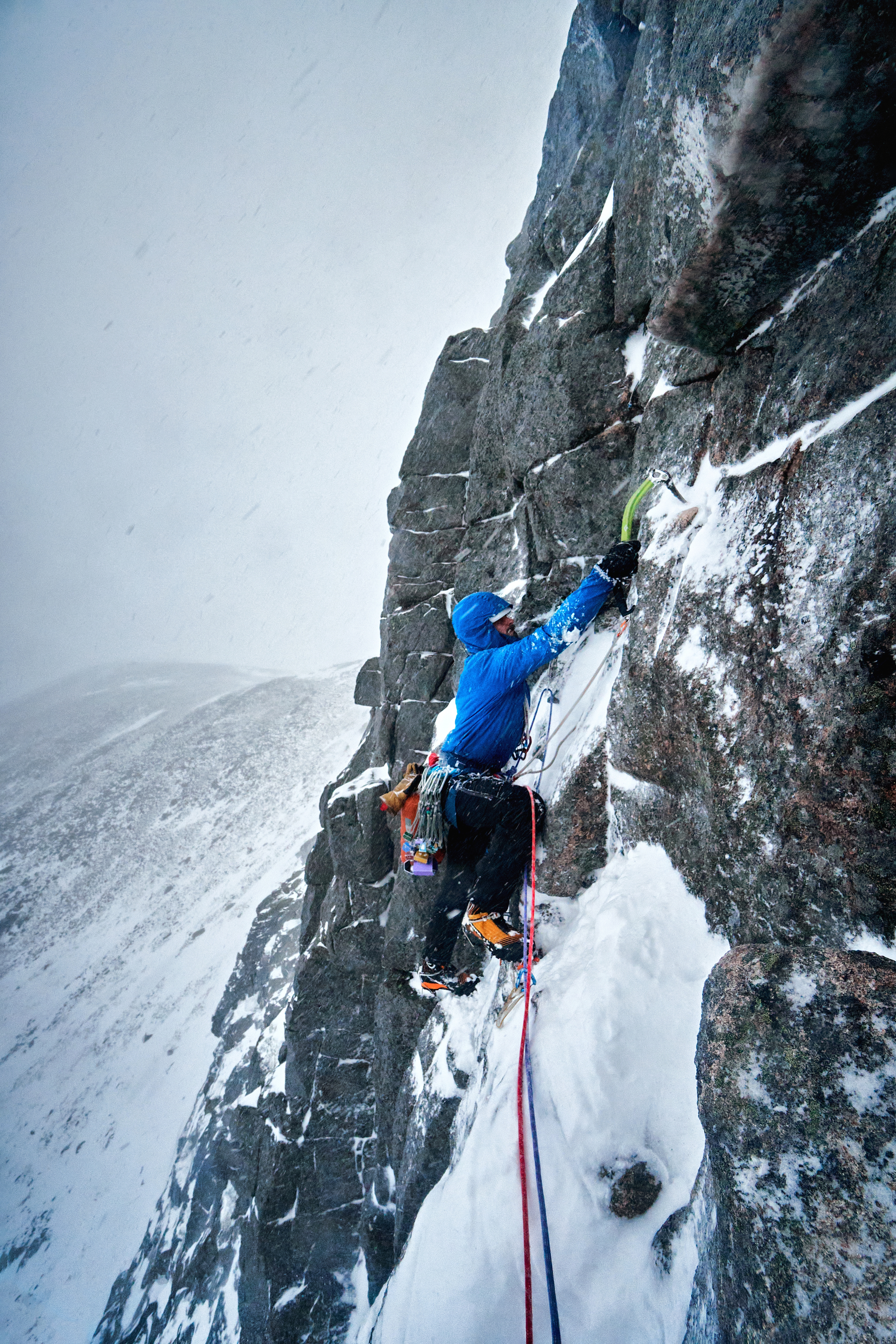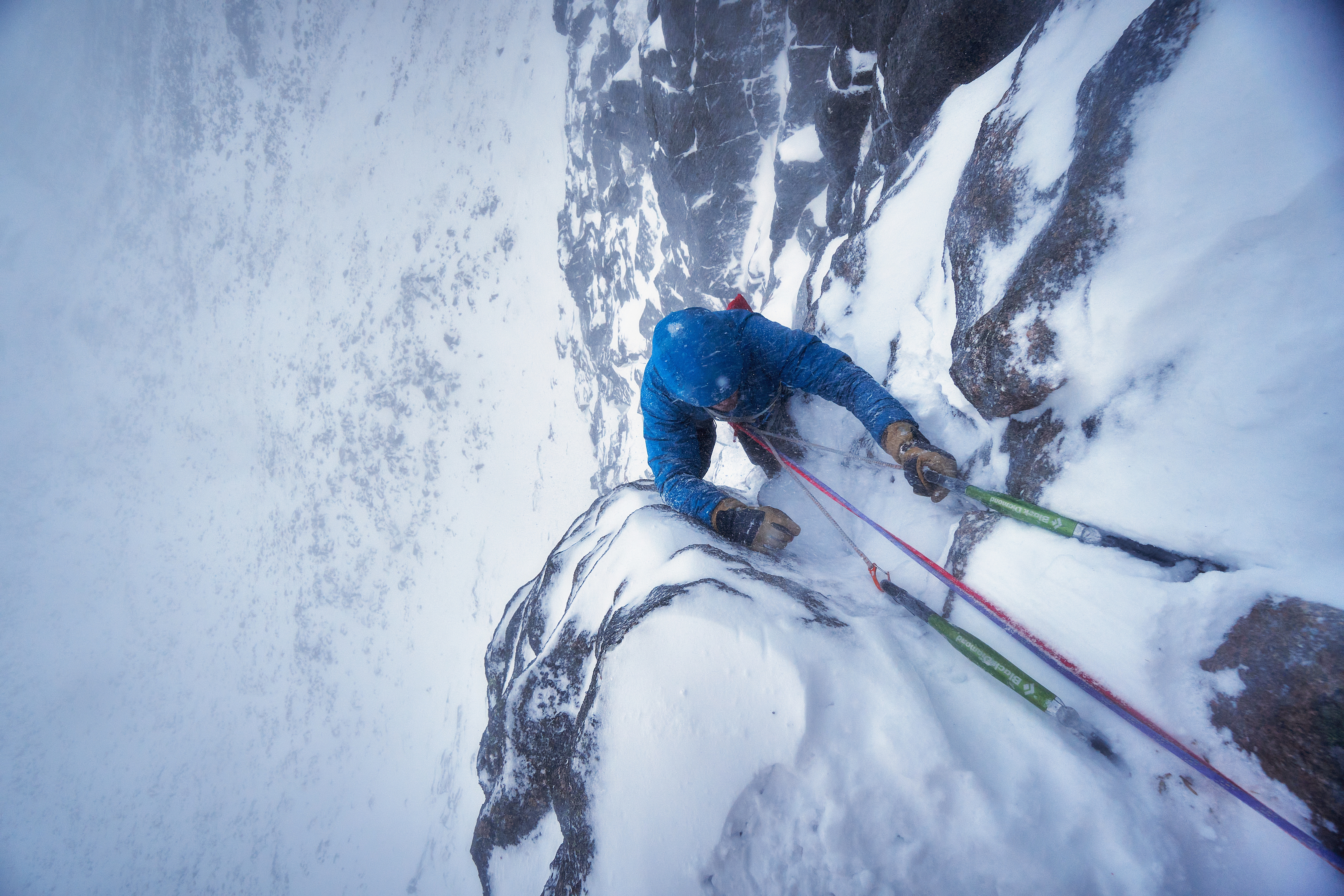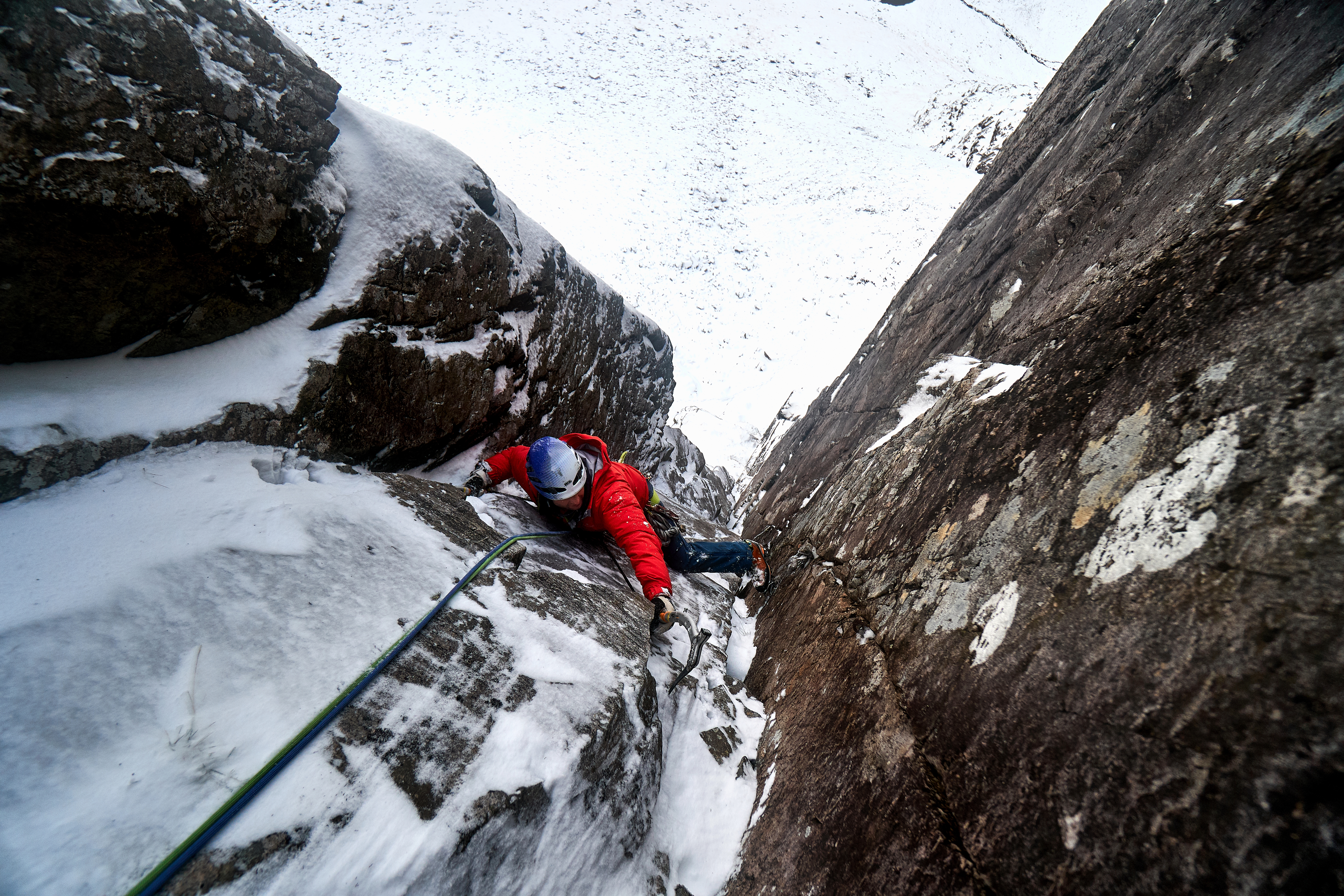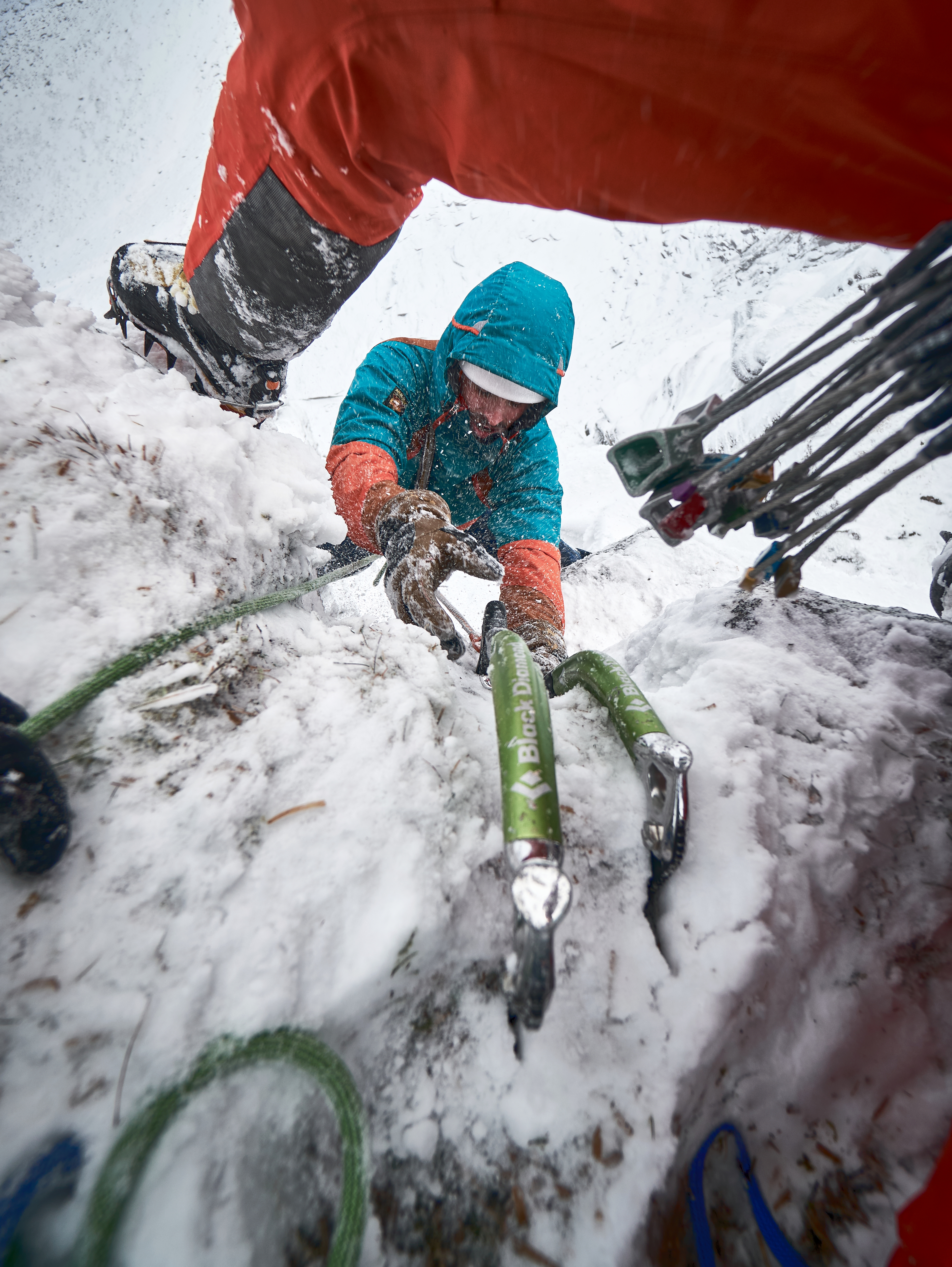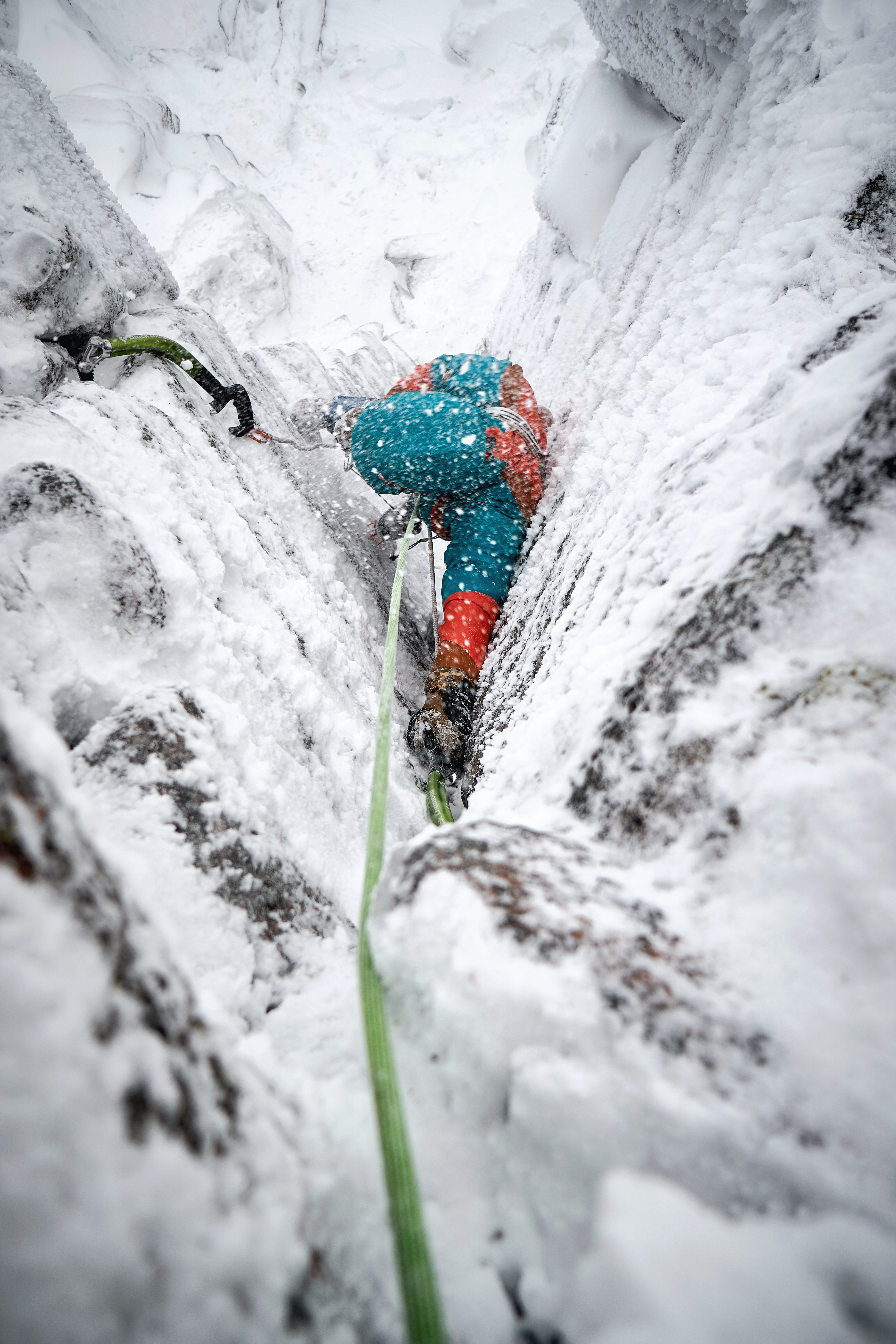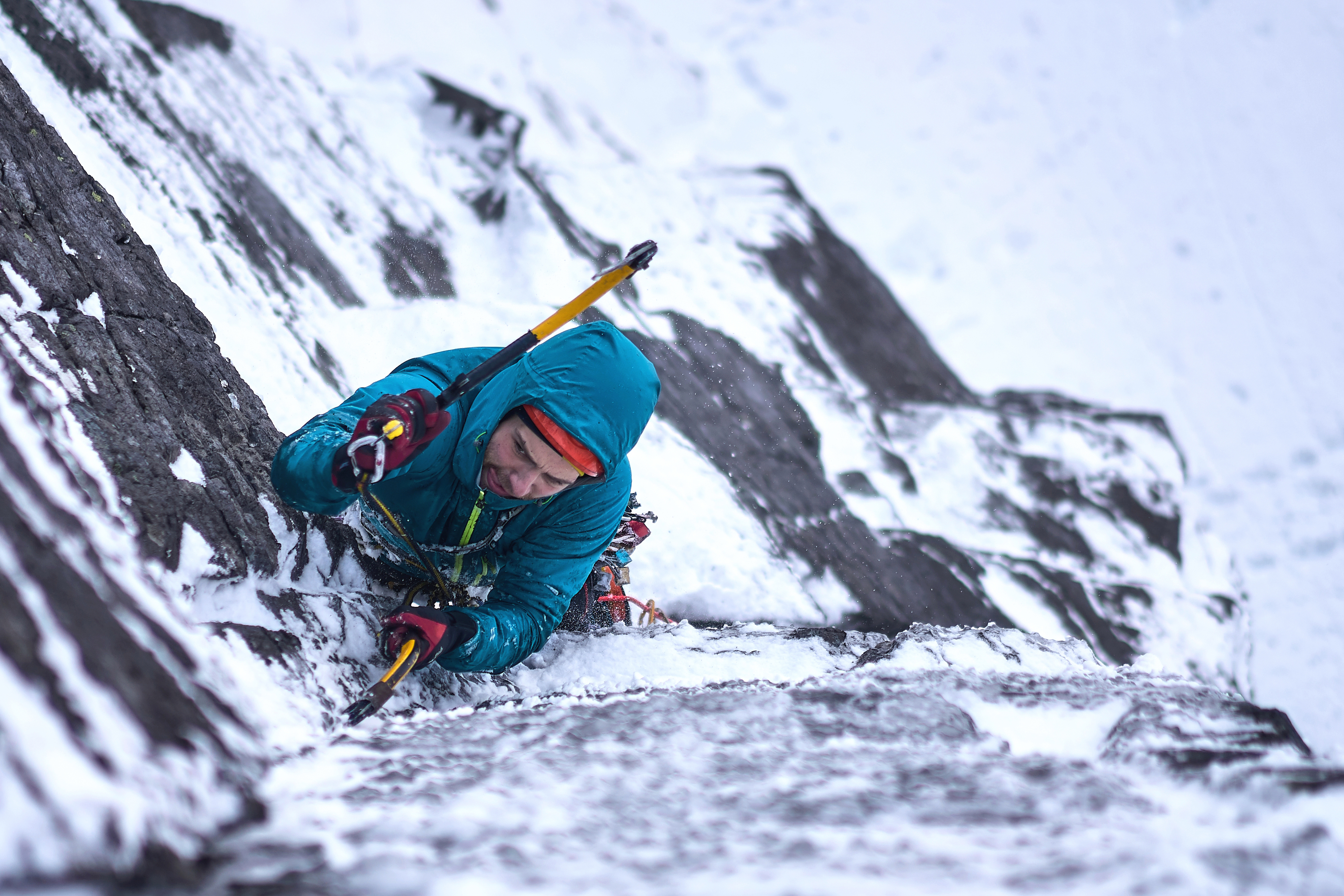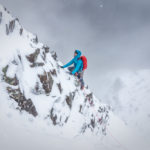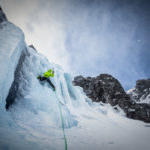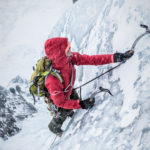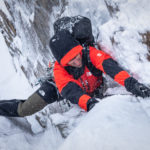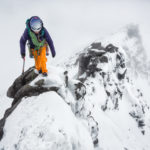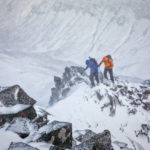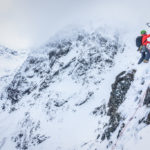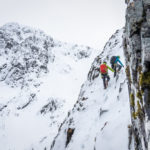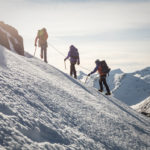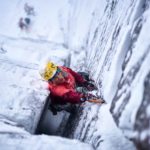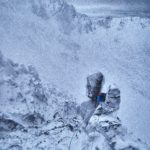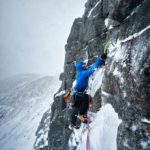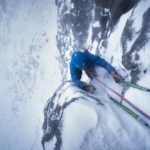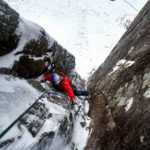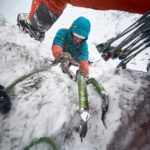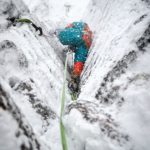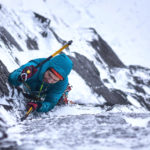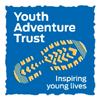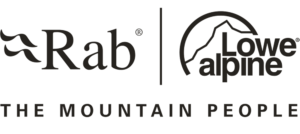Overview
All of our Winter Mountaineering and Climbing days are tailored specifically to you, offering you complete autonomy and flexibility during your time spent with us. Prior to your course, we will liaise with you to understand what level you’re currently at and, what you hope to achieve in the days you have booked.
We base ourselves on the west coast of Scotland where we have easy access to classic mountaineering routes such as Curved Ridge on Buachaille Etive Mor, the Aonach Eagach ridge, Tower Ridge on Ben Nevis and legendary climbing routes such as Point 5, Orion Direct, or Smith’s Route on Ben Nevis. We do also however, often operate on the east coast in venues such as the Cairngorms as well.
Our Winter Mountaineering and Climbing courses in Scotland are best undertaken from January through to April. You can choose any dates that suit you and we’ll find the very best Instructor to match your objectives.
During our days together we’ll cover many aspects of mountaineering and climbing in winter, and improve on your current knowledge and skills. Wherever possible we try and involve you with the following:
- Equipment selection and packing
- Weather and avalanche conditions; interpretation and planning together with venue choice
- Staying warm and dry
- Having fun & enjoying the day
In a nutshell, we aim to deliver your winter mountaineering and climbing aims whilst teaching you many skills and passing on lots of mountain knowledge in the process.
Trip Suitability
Our Winter Mountaineering and Climbing courses are designed for those with some previous experience of winter mountaineering and we’ve graded it C2 to reflect this (refer to the Difficulty Level tab for more details).
All the winter mountaineering is based in Scotland where there is a huge variety excellent venues. There is certainly something for everyone, whatever the level or grade you’re at and we have a broad variety of friendly top level Instructors who can deliver all aspects of your winter mountaineering course.
If you are unsure if your experience is suitable, please don’t hesitate to Contact Us and we’ll discuss it with you in more detail.
Itinerary
Our winter mountaineering itinerary varies with each course. The locations that you visit will be determined by your aims as well as the weather and conditions. On the west coast of the Highlands we have a huge variety of options to choose from including mountaineering and climbing on classic mountains like Ben Nevis. A flexible approach is essential as this will give you the best chance of finding good snow.
Your instructor will be in touch with you directly before the course and will arrange to meet you either, on the evening before if convenient, or on the morning of day 1.
This is an example of a 2 day mountaineering itinerary:
Day 1
- Meet your instructor at 8:30am either at a pre-allocated café or your accommodation
- Discuss the aims and objectives of your days together
- Look at weather conditions and make a plan
- Check your personal kit
- Go mountaineering, have an amazing day and learn lots
- Head to a café for 4:30pm/5pm for tea, cake and a chat about the day
- Discuss tomorrows aims
Day 2
- Meet your instructor at 8:30am either at a pre-allocated café or your accommodation
- Go mountaineering, further develop on yesterday’s learning and skills, have a super day
- Head to a café for 4:30pm/5pm for tea, cake and to re-live your two day adventure
- Depart and head home
Venues that we often use in Scotland include the ski areas at Aonach Mor and Glencoe, Buachaille Etive Beag, Bidean Nam Bian, Ben Nevis and the Mamores.
Map
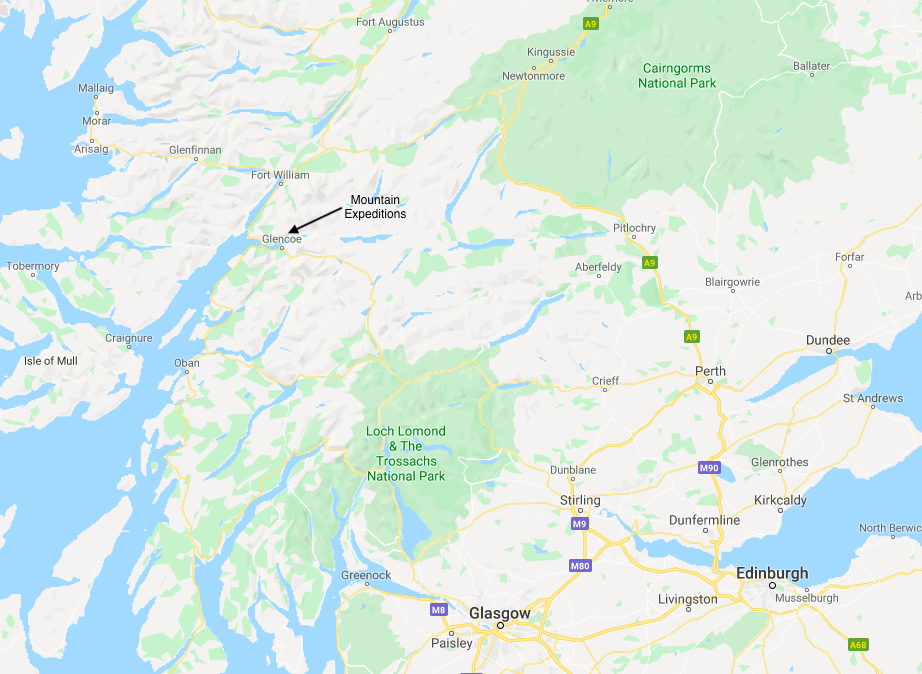
Included
When you book with Mountain Expeditions, we want you to know exactly how much the course is going to cost you, with absolutely no hidden extras or last-minute costs. Our mountaineering courses are all charged on a day rate basis and we leave you to arrange your travel and stay.
The following are included in the price:
- UK Winter Mountaineering and Climbing Instructor (WMCI or WML) – highly qualified & very experienced
- All required technical group equipment – ropes, climbing rack etc.
- All mountain safety and emergency equipment
- Transfers to and from the venue
Please also refer to the Not included section.
Not Included
The following are NOT included in our price.
- Transport to and from Scotland
- Accommodation*
- Personal climbing equipment: helmet, harness, shoes, belay plate, ice axes, crampons etc. These are available for hire from us if you don’t already have them, or we can help you choose the right ones at a local climbing shop
- All meals including packed lunches
- Trip insurance
* We recommend basing yourself in or close to Glencoe. There are plenty of B&Bs to choose from and the village has a small supermarket, pubs and restaurants nearby. We recommend checking out the legendary Clachaig Inn
If you require any advice or help with any of the above, simply Contact Us.
Difficulty Level
All of our UK Courses & Worldwide Expeditions come with a suggested difficulty level to help you choose the correct one. For a full explanation of the Scottish Winter, Alpine and UK Rock Climbing grading systems, this blog explains them all – Grades Explained
Grading for UK Courses
With all our UK courses please refer to the Trip Suitability section for more specific details on course expectation and technical and physical levels required.
C1 – Intro Course: open to any level and ability
C2 – Intermediate Courses: previous experience of scrambling/rock climbing or winter mountaineering
C3 – Advanced Courses: previous technical summer or winter climbing experience
Grading for Worldwide Expeditions
With all our Worldwide Expeditions you should refer to the Trip Suitability section for more specific details on the expedition expectation and technical and physical levels required. If in any doubt please don’t hesitate to contact us.
Physical
A. Good basic fitness, as for UK hill walking and mountaineering. Average rucksack weight: 6-8 kg
B. Good cardio-vascular fitness which for most people requires some training, by running, hiking and perhaps some gym work. Average rucksack weight: 8-12 kg.
C. High level of fitness coupled with physical toughness and the ability to carry a heavy rucksack for long periods. Average rucksack weight: 12-18 kg.
D. As for C, but tougher. Climbs of this grade are exceptionally strenuous and some weight loss is inevitable. Train hard and arrive fit. Welcome to ask for advice if training specifically.
E. Hard physical effort at extreme altitude which requires thorough preparation based on your experience of previous trips. Comments for ‘D’ also apply. May cause long-term fatigue after the trip.
Technical
1. Low angle snow or straightforward scrambling on rocks. Ropes are not usually required. Previous climbing experience is not essential.
2. Ropes are used principally for glacier travel and low angle snow or ice slopes. Ice axe and crampon experience necessary.
3. Short, steep sections of snow or ice up to about 50 degrees. Previous snow and ice climbing experience of Scottish III/Alpine PD is essential.
4. Long, steep snow and ice slopes with short steps of very steep ice or low grade rock climbing. Good all-round climbing ability required to Scottish III/Alpine AD.
5. Very steep ice (Scottish III/IV or harder) or rock (Hard Severe or harder). Suitable for competent mountaineers who have climbed consistently at these standards.
In-country Safety

